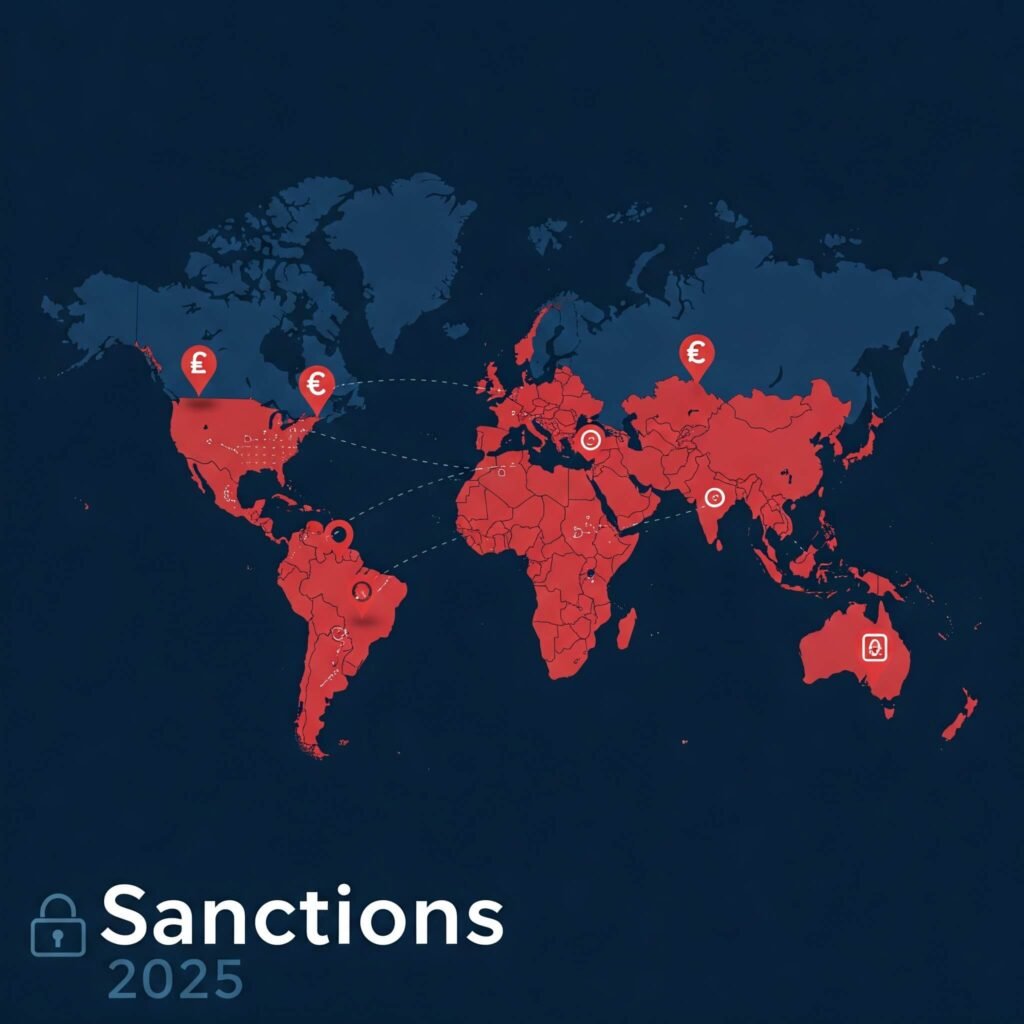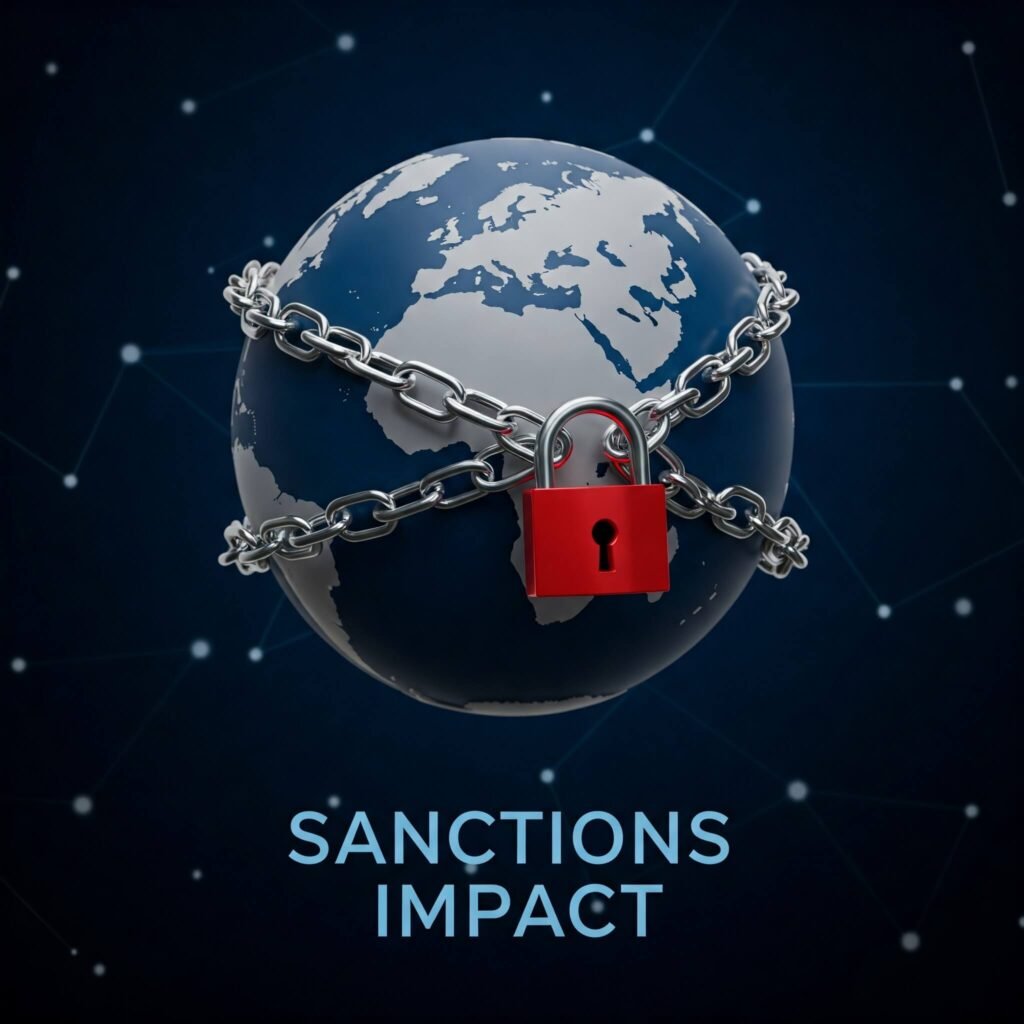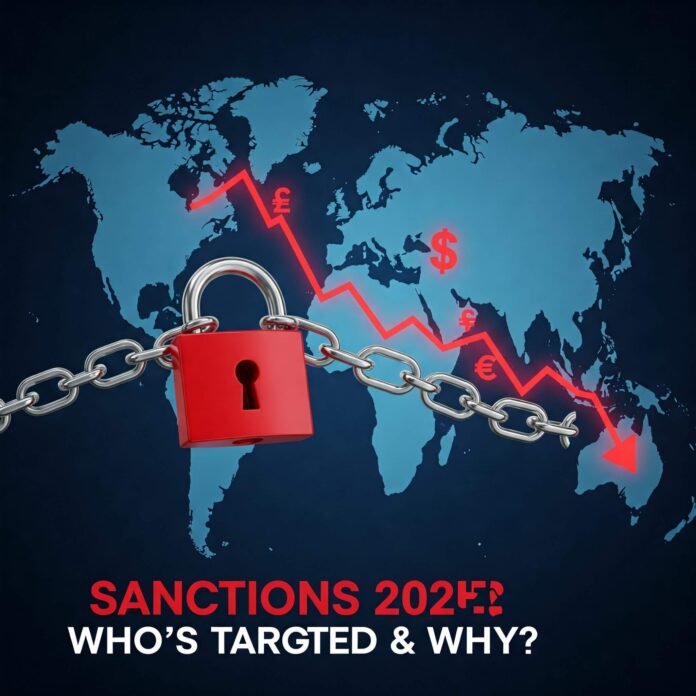Sanctions 2025 are reshaping global politics and economies, targeting nations, entities, and individuals to enforce international policies. This blog explores the key players under these targeted sanctions, the reasons behind them, and their worldwide effects. Whether you’re a policy buff or just curious, we’ll unpack the complex world of global sanctions in an engaging, easy-to-understand way.
Sanctions 2025: The Global Landscape
Sanctions 2025 serve as powerful tools for governments and international organizations to influence behavior without military intervention. These targeted sanctions include economic restrictions, travel bans, and asset freezes, aimed at countries, groups, or individuals. According to the Council on Foreign Relations, global sanctions deter actions like human rights violations, nuclear proliferation, or territorial conflicts.

Why These Measures Matter
Global sanctions in 2025 are pivotal amid rising geopolitical tensions. They impact trade, energy markets, and diplomacy. For instance, sanctions on oil exports can drive up global energy prices, affecting consumers everywhere. Understanding the scope of Sanctions 2025 helps decode these far-reaching consequences.
Key Targets of Sanctions 2025
Sanctions 2025 target a diverse group of nations, organizations, and individuals. Here’s who’s in the spotlight:
- Russia: Intensified sanctions since the Ukraine conflict target energy exports and financial systems. The U.S. and EU aim to disrupt Russia’s war funding through measures like SWIFT exclusions (Reuters).
- Iran: Targeted sanctions focus on Iran’s nuclear ambitions and regional influence, restricting oil exports and impacting global supply chains.
- North Korea: Global sanctions aim to curb missile tests and nuclear programs through stringent trade and financial controls.
- Non-State Actors: Terrorist groups like ISIS and cybercriminals face asset freezes and travel bans to disrupt funding.
- Individuals: High-profile figures, such as oligarchs or officials, face personal sanctions to pressure governments.

Reasons Behind Global Sanctions
Sanctions 2025 are driven by specific geopolitical and ethical objectives. Here are the main reasons:
- Security Threats: Nations like North Korea face targeted sanctions to halt nuclear proliferation, as noted by the United Nations.
- Human Rights Abuses: Countries like Myanmar face global sanctions to push for reforms.
- Economic Pressure: Sanctions on Russia’s energy sector aim to weaken its economy.
- Cybercrime: Sanctions target groups behind ransomware attacks, which cost billions annually, per FBI reports.
Russia’s Oil Restrictions in 2025
In 2025, EU sanctions on Russian oil exports have triggered a 15% surge in global oil prices, impacting consumers from Berlin to Boston. These targeted sanctions aim to cut Russia’s revenue but also reveal the interconnected nature of global trade.
Sanctions 2025: Actionable Insights
Navigating Sanctions 2025 can seem daunting, but here are practical ways to stay informed:
- Follow Trusted Sources: Monitor updates from Reuters or the Council on Foreign Relations for reliable news on global sanctions.
- Understand Impacts: Research how Sanctions 2025 affect your industry, especially in energy, finance, or tech.
- Join Discussions: Engage in forums or social media to discuss the effects of targeted sanctions.

The Future of Global Sanctions
Sanctions 2025 will evolve with technology and geopolitics. Expect a rise in cyber sanctions as digital threats grow. Emerging economies may also face new targeted sanctions as global powers vie for influence. Staying informed about global sanctions will be crucial.
Preparing for Future Restrictions
Businesses and individuals can prepare for Sanctions 2025 by using tools like Google Alerts for real-time updates. Diversifying supply chains and investing in compliance software can also reduce risks associated with targeted sanctions.
Sanctions 2025 are more than diplomatic measures—they’re reshaping the global economy and security landscape. By understanding who’s targeted and why, you can navigate their impacts. Share your thoughts in the comments, and stay tuned for more insights on global sanctions!

